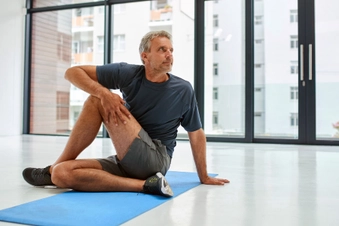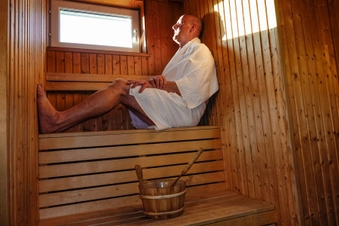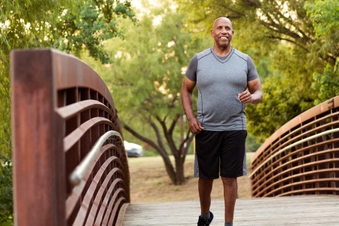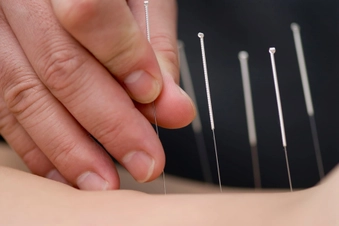Stress and Heart Failure: How to Keep It in Check

Turn on the Tunes
Listening to music can help heal your heart, according to research. Just 30 minutes a day reduces anxiety and pain. And that lightens the stress load on your ticker. Give it a try.

Meditate
The practice of meditation -- sitting still and focusing on your breath while thinking about a calming image or phrase -- can bump up your heart rate variability. That’s a measure of how quickly your heart changes between beats. The higher the variability, the healthier your heart. So take a deep breath and say “om.”

Take Up Yoga
The gentle exercise of yoga, which includes stretching, breathing techniques, and a focus on balance, can reduce signs of inflammation in your body, as well as lower your blood pressure. You’ll also deal with less pain related to heart failure.

Practice Tai Chi
Tai chi is a mind-body practice that comes from Japanese martial arts. Often described as “meditation in motion,” tai chi can increase aerobic staying power for people with heart disease. In other words, over time, tai chi’s slow, purposeful movements can help your heart pump better for longer.

Sweat It Out
Studies show that sitting in a sauna -- for a limited time -- can bring the same health benefits to your heart as regular exercise. For people with heart disease, it improves your left ventricular ejection fraction. That’s the amount of blood the left side of your heart is able to pump out with each heartbeat. But don’t go swapping your workout for a sauna session. Add a little extra time for the sauna the next time you hit the gym.

Move Your Body
Regular exercise -- 30-40 minutes at least four to five times a week -- boosts your heart health. It improves your cholesterol numbers, lowers blood pressure, and keeps your weight in check, which dials back the stress on your heart.

Try Acupuncture
In this alternative medicine treatment, a practitioner sticks thin needles into your skin at certain points on your body. It decreases stress levels and increases your heart rate variability, which is a sign of less stress on your heart.

Build a Support System
It may seem small, but its effect on stress isn’t: Having friends, family, and other social support groups can lower your stress levels. Not only that, you’re more likely to take better care of your health when you have a support system, too.

Talk to a Professional
Your doctor or a licensed counselor can help you come up with coping strategies to lower stress levels. Have a conversation about the specific stressors in your life and how you can reduce their impact. A counselor can also help you come up with ways to fit exercise and relaxation techniques into your routine.

Visit a Furry Friend
Just 12 minutes with a trained therapy dog can lower blood pressure, decrease stress hormones, and reduce anxiety levels in people with heart failure.

Prioritize Sleep
Lack of sleep is linked to high blood pressure and poor heart health. The lower your sleep quality and quantity, the higher your stress levels and the more harm to your heart.

Breathe Deep
Purposeful deep breathing can also be called diaphragmatic breathing, abdominal breathing, belly breathing, and paced respiration. If you sit and take slow, deep breaths for 10-20 minutes a day, it helps keep your body’s stress -- or “fight-or-flight” -- response at bay.
Show Sources
IMAGES PROVIDED BY:
- kupicoo / Getty Images
- Ridofranz / Getty Images
- jeffbergen / Getty Images
- TommL / Getty Images
- Alexander Farnsworth / Getty Images
- digitalskillet / Getty Images
- zilli / Getty Images
- miodrag ignjatovic / Getty Images
- SDI Productions / Getty Images
- Capuski / Getty Images
- Wavebreakmedia / Getty Images
- AlexanderFord / Getty Images
SOURCES:
American College of Cardiology: “Music as Medicine? 30 Minutes a Day Shows Benefits After Heart Attack.”
Harvard Medical School: “Mindfulness can improve heart health,” “The health benefits of tai chi,” “Tai chi: A gentle exercise that may help heal your heart,” “Relaxation techniques: Breath control helps quell errant stress response.”
International Journal of Yoga: “Yoga for Heart Failure: A Review and Future Research.”
European Journal of Preventive Cardiology: “Sauna exposure leads to improved arterial compliance: Findings from a non-randomised experimental study.”
Experimental & Clinical Cardiology: “Beneficial effects of sauna bathing for heart failure patients.”
University of Rochester Medical Center: “Stress Can Increase Your Risk for Heart Disease.”
Medical Acupuncture: “Does Acupuncture Reduce Stress Over Time? A Clinical Heart Rate Variability Study in Hypertensive Patients.”
Hopkins Medicine: “Risk Factors for Heart Disease: Don't Underestimate Stress.”
American Journal of Critical Care: “Animal-Assisted Therapy in Patients Hospitalized With Heart Failure.”
CDC: “How Does Sleep Affect Your Heart Health?”